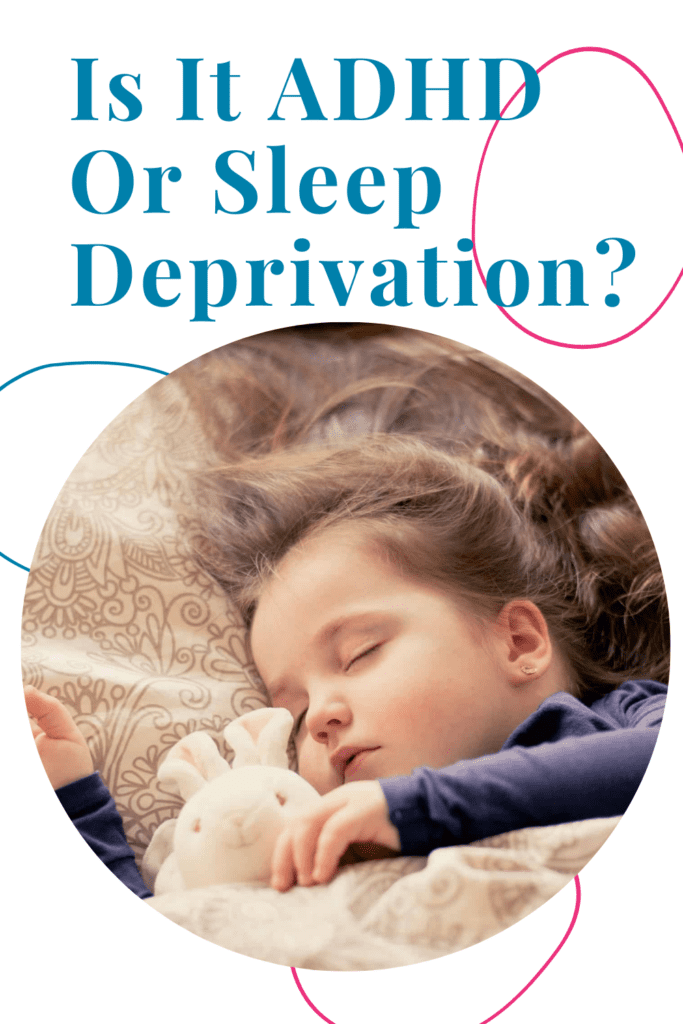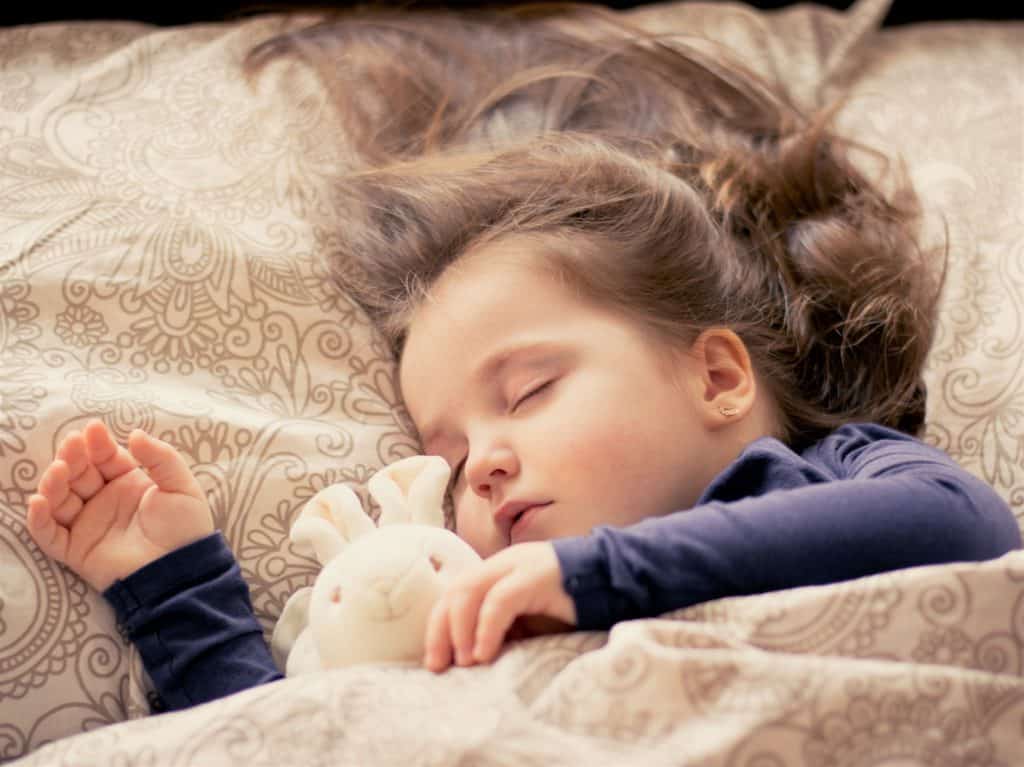Sleep Matters.
It’s super easy to underestimate its value amidst all the other ways to help your child focus, learn and behave better.
But trust me – sleep is definitely not something you want to overlook or put off and address later on.
Sleep could be the biggest part of the equation.
The impact of quality sleep has been widely researched for decades. Improving sleep quality without changing anything else has been found to have astounding effects on learning, behaviour and mood.
Poor Sleep Triggers ADHD-Like Symptoms Among Neurotypical Kids
Lack of or poor sleep, even among children who were otherwise neurotypical, has been found to result in poor memory and focus, irritability, hyperactivity, impulsiveness and shorter attentions span as well as moodiness and emotional reactivity.
One study revealed that lack of sleep impacted a child’s ability to problem solve, be creative, self-regulate and that these children in general scored lower on IQ tests. (1)
The Link Between Poor Sleep & ADHD, Anxiety and Poor Behvaiour
A world-first study based out of Australia stated, “Even mild cases [of sleep deprivation] may be linked to issues such as feeling unwell, worry, sadness, nervousness, lack of confidence, a bad temper, poor behaviour, fighting, lying, stealing and hyperactivity.” (2)
Other research declared children with chronic sleep problems were four to five times more likely to be diagnosed with behavioural disorders and yet another study revealed that lack of sleep impacted the development of executive function – a major identified area of underdevelopment in children with ADHD. (3)
Dr. Dean Beebe, director of the neuropsychology program at Cincinnati Children’s Hospital Medical Center stated that, “inadequate sleep causes everyone, including children, to be biased towards seeing the world in a more negative light and less in a positive one… [children can have] problems regulating the ups and downs in their moods, leading to wider and more rapid reactions to relatively minor events.”
Dr. Jodi Mindell, Associate Director at the Sleep Center at the Children’s Hospital of Philadelphia writes that, “Children who don’t get sufficient sleep at night, are more likely to be overactive and non-compliant, as well as being more withdrawn and anxious.” (4)
We know as adults that lack of sleep makes us crazy. Sleep is necessary to regulate stress hormones; a child with high cortisol is not going to be a happy camper.
Is it Really ADHD or is it a Sleep Disorder?
It’s also important to note that poor sleep is not always a symptom of ADHD but the cause. A recent study actually found that a large number of kids diagnosed with ADHD actually had a sleep disorder. When they were treated for their sleep disorder – their ‘ADHD’ disappeared. (5)
A child who is lacking sleep is also probably going to feel sick more often and while at first glance that might appear to be irrelevant to behaviour – it’s quite the opposite.
The Connection Between Sleep, Your Child’s Immune System & Behaviour
If you read my article about how the immune-gut axis plays a significant role in ASD and ADHD – then it won’t be hard to understand why your child being sick can seriously increase poor focus, learning and behavior.
Lack of sleep also affects your child’s immune system by hindering your child’s ability to fight off infections. The body does its detoxification when you’re sleeping.
Sleep is also when your body produces cytokines which fight off infection, keeps your immune system modulated and your child’s brain in their gut and their head happy.
Falling Asleep Can Be Harder than Rocket Science
Sleep is tricky. You may assume your child is getting enough if it’s not affecting you.
Some moms complain it takes them hours to get their kids to fall asleep. But – at least they know.
Other moms have no idea that their child is constantly waking or that they take a long time to fall asleep.
For kids on the spectrum or with ADHD, difficulty falling or staying asleep is a common complaint among parents. If your ADHD child has been in chronic sleep deprivation for months or even years, then it’s easy to dismiss their symptoms as being “just part of the ADHD.”
In part 2 of my Sleep Series, I will outline what you can do to help your child fall asleep easily and stay asleep!
Want to learn more about what you can do to help your child sleep, learn and behave better? Contact me for a free 20-minute Better Brain Breakthrough session or check out my programs.
Sources:
- https://www.ncbi.nlm.nih.gov/pubmed/9768476
- https://pursuit.unimelb.edu.au/articles/more-sleep-less-bad-behaviour
- https://www.ncbi.nlm.nih.gov/pmc/articles/PMC3669074/
- Jodi Mindell, Associate Director at the Sleep Center at the Children’s Hospital of Philadelphia and author of Sleeping Through the Night: How Infants, Toddlers, and Their Parents Can Get a Good Night’s Sleep.
- https://www.psychologytoday.com/ca/blog/sleep-newzzz/201305/adhd-or-sleep-disorder-are-we-getting-it-wrong


